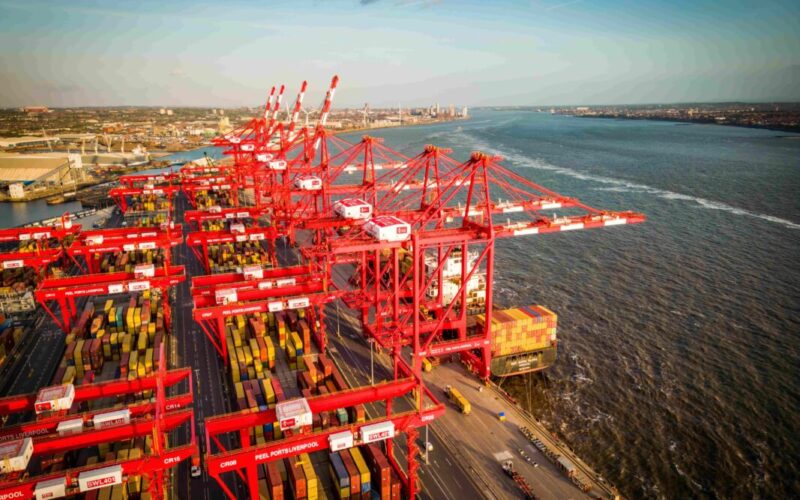Some of the UK’s fastest-growing value retailers have joined major port operator Peel Ports Group in calling for a new UK port of entry strategy.
According to Peels Ports, this strategy aims to decrease lead times, save costs, and reduce carbon emissions.
Major discount businesses, including Home Bargains owner TJ Morris, have called for shipping lines to implement a new North/South, two-port UK strategy that would see them use both northern and southern ports to supply deep-sea containerised freight.
Historically, 90 per cent of deep-sea containerised traffic reaches the UK through southern ports, despite 60 per cent of these commodities being bound for the north.
This creates several issues, including limited rail and HGV driver capacity, congested highways, cargo delays, poor landside operations, and increased pollution from long, unneeded road travels.
The new approach was discussed during a British Retail Consortium webinar jointly hosted by Peel Ports Group, with the retail leaders claiming changing the current outdated model would enhance the effectiveness of the country’s retail supply chain.
READ: Stena Line, Peel Ports sign 77-year deal to operate at Heysham Port
During the ‘60/90 dilemma – why sluggish UK retail supply chains are overdue a rethink‘ webinar, TJ Morris Freight Manager, John Cavanagh, and Trinity Logistics Managing Director, Amanda Unsworth, discussed how bringing goods closer to their final destination would result in a more efficient, robust and sustainable retail supply chain.
The panel discussed how using a two-port strategy would improve operational efficiency for merchants, allowing them to respond more quickly to customer requests and capitalise on market trends.
They suggested that a North/South approach would eliminate elements that cause delays, such as inclement weather or unplanned occurrences on roads and rail.
The panel urged shipping companies, the government, and port operators to collaborate to bring a two-port plan to reality.
Stephen Carr, Group Commercial Director at Peel Ports Group, said: “A North-South, two-port UK strategy could address many of the country’s logistics challenges, transforming and modernising supply chains for retailers and other cargo owners.
“There’s a high level of support from the retail sector, driven by a need to better optimise the flow of seaborne cargo to enable much greater landside efficiencies. If we’re to see a supply chain which works with retailers, not against them, then it makes little sense to rely on the current status-quo – we need to utilise the ports of entry in the north, and across the whole country.”
READ: Peel Ports Logistics, Drax ink vessel agency deal
John Cavanagh, Freight Manager at Home Bargains owner TJ Morris, stated: “The benefits that a two-port strategy brings are lower transport costs, a reduction in carbon emissions, as well as providing us with quick and easy access to containers, which allows us to have more efficient processes.
“The current system is still in place for historical reasons, but our business model is all about keeping it simple, and a two-port strategy means we can react to demand, which gives us a real advantage.”
Amanda Unsworth, Managing Director, Trinity Logistics, added: “If you bring cargo destined for the north into southern ports it leaves you open to all sorts of issues. It just makes sense to bring goods in closer to the end user – it’s easier to manage and it reduces the risk of delays, as well as making us better able to react to situations as they arise.
“We need senior leadership in our industry to commit to a two-port strategy; if we get that commitment, I’m certain it will take off and be successful, as we’ve proven in the past that it can be. We need to work together to get that message across.”
In February, Peel Ports Group announced the appointment of Jason Clark as its new Chief Financial Officer (CFO).








